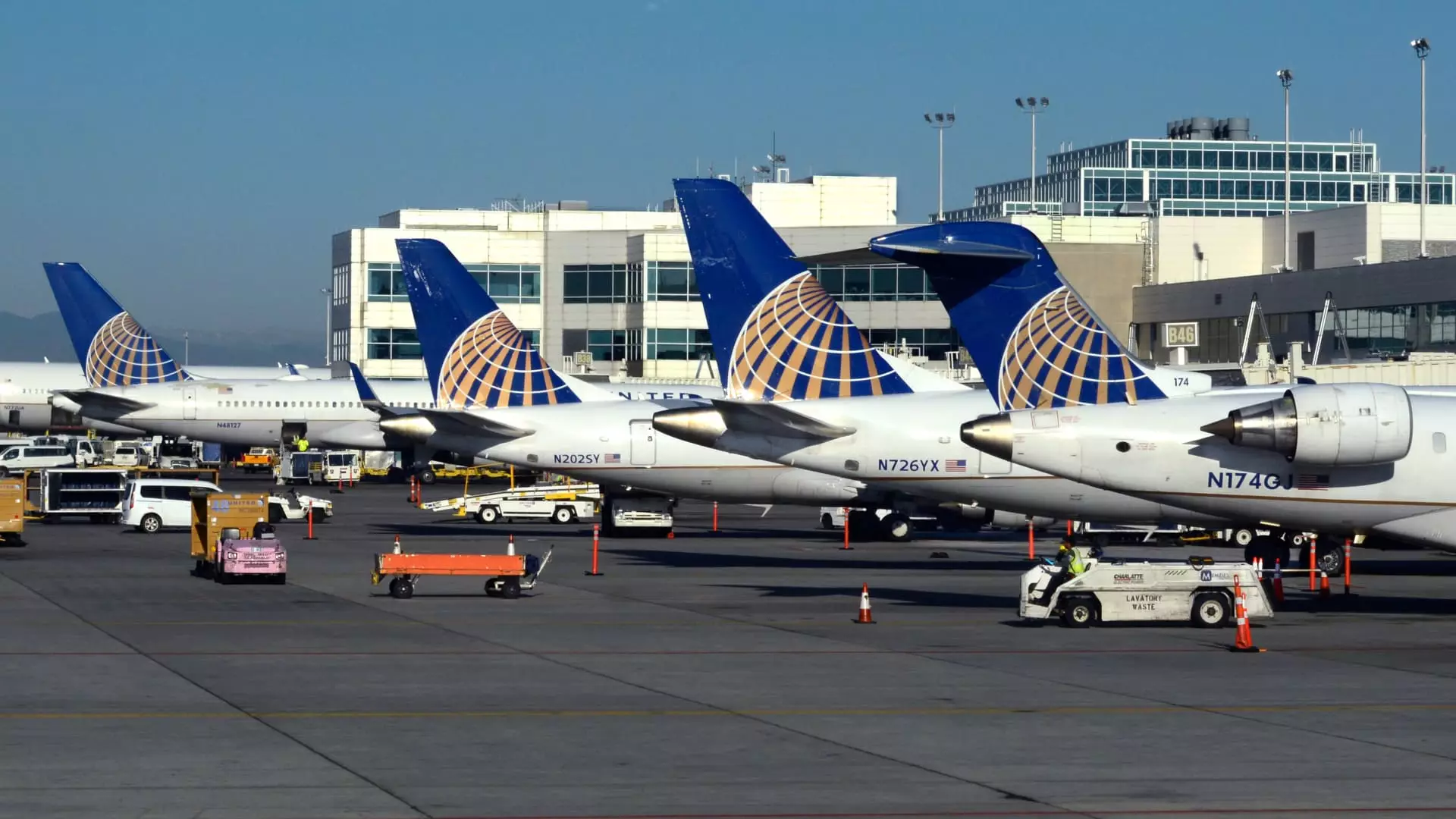In a landscape where consumer preferences are perpetually evolving, United Airlines has made headlines by raising the fees for its airport lounge memberships and co-branded credit cards, all while presenting a shiny veneer of added benefits. This raises fundamental questions about the nature of customer loyalty and the lengths to which airlines will go to monetize perks that once attracted travelers in droves. Is this a wise business strategy, or merely a greedy maneuver that may ultimately backfire?
A Calculated Gamble on Consumer Behavior
United Airlines’ CEO Richard Nunn champions the idea that the newly introduced benefits will significantly outweigh the fee increases. However, this optimism seems somewhat disconnected from the current economic climate. Post-pandemic, many consumers are becoming more financially conservative. As discretionary spending decreases, how can United be so confident that travelers are willing to shell out more for lounge access and credit cards that already feel overpriced? The gamble hinges on the assumption that the allure of added perks will be enough to insulate against any backlash from cost-cutting consumers.
The Crowded Lounge Dilemma
As United seeks to lure more customers into its lounges, which have been overwhelmed with an increase in premium-credit-card holders, it paradoxically raises barriers to entry. By tightening the criteria for access and increasing fees, the airline risks alienating a core group of its loyalty program members who may have felt an inherent right to enjoy the space they once frequented without additional costs. This creates a conundrum: how does the airline balance enhancing exclusivity while simultaneously inviting more customers?
Revenue Generation over Genuine Loyalty
United’s impressive earnings report, noting a 10% increase in “other” revenue mostly driven by loyalty programs, speaks volumes about the current trend in air travel economics. It is clear that airlines are transforming customer loyalty into a revenue-generating model rather than a relationship built on trust and service quality. By introducing more fees for previously complimentary services, United is not only prioritizing profit over loyalty but is also forgoing the essence of building genuine relationships. As loyalty programs grow increasingly transactional, United seems to be edging closer to becoming just another faceless corporation looking primarily to capitalize on customer connections, rather than nurturing them.
The Illusion of Value
While the airline markets new bonuses like rideshare credits and award flight discounts, the real question must be asked: do these new perks truly represent value, or are they merely superficial incentives designed to mask the inconvenience of higher fees? As consumers begin to question the actual benefits of these offerings, it’s foreseeable that many may feel deceived rather than rewarded.
By presenting these changes with optimistic rhetoric, United invites skepticism. In a world where customer loyalties can quickly turn sour, the airline is treading a precarious line. The dangerous fusion of increased fees and purported benefits presents an opportunity for competitors to capitalize on any dissatisfaction that might arise. As United pushes forward with this strategy, discerning travelers will be watching closely, likely weighing their options for the next journey.

